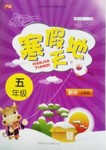题目内容
【题目】It was the men’s figure skating final of the Winter Olympics when I was 16.I lay on our living room floor excitedly watching the battle between the Brains: American Brain Boitano facing Brian Orser in Canada. Both of them had been world champions. Both of them deserved to win. As a Northern Californian, I was for my fellow countryman. He also grew up in Northern California. We'd skated on the same ice. Brain performed successfully. The champion! I jumped in the air when his score went up.
But what happened next is what I'll never forget. Brain sat in front of the camera, surrounded by a group of journalists. Brain was talking about his career and his medal, talking to the whole world. A terrible sinking feeling went through me. I could never be in the Olympics,
I thought, I loved skating because I could express myself with my jumps and dances better than words.
What if journalists asked me questions like they asked Brain? I'd freeze up like the ice beneath my skates! And yet, there was so much I would love to say, about my family and all the support they'd given me and about following my dream of being a skating champion.
I worked very hard the next few years — on the ice and especially off. After journalists talked to me and although my heart pounded every time I spoke to them, I got to know them. And they got to know me. Slowly I learned that the best approach was simply to be myself, to be honest and gracious and do my best, just like on the ice, to answer their questions.
So when my big moment came four years after Brain's, I was ready. Remember: when you do the thing you fear most, you put an end to fear.
【1】What information can we get from the first paragraph?
A. The author lives a difficult life. B. The author comes from Canada.
C. The author preferred Boitano to win. D. Orser won the gold medal.
【2】What did Brain’s press conference remind the author of ?
A. Her fear of public speaking.
B. Her pride in Brain's victory.
C. Her dream of becoming a world champion.
D. Her hard training as an Olympic competitor.
【3】What does the underlined word “off ” possibly refer to?
A. Challenges in school. B. Contact with reporters.
C. Achievements in skating. D. Competitions with others
【4】What was the author ready to do according to the last paragraph?
A. Do her best to win. B. Enter the Olympic final.
C. Make friends with reporters. D. Talk to the press afterwards.
【答案】
【1】C
【2】A
【3】B
【4】D
【解析】作者是一名滑冰运动员,讲述自己观看冬奥会的一场花样滑冰比赛时,看到获胜者接受媒体采访,自己突然害怕起来,担心以后也会接受这样的采访。但随着不断努力,终于克服了这种恐惧心理。
【1】C
推理判断题。根据第一段American Brain Boitano 和I was for my fellow countryman. He also grew up in Northern California. We'd skated on the same ice.可知作者也是美国人,肯定希望自己的同胞兼队友赢。故选C.
【2】A
推理判断题。根据第三段What if journalists asked me questions like they asked Brain? I'd freeze up like the ice beneath my skates!可知作者害怕赛后的新闻发布会,害怕接受记者们的提问,害怕在公共场合讲话。故选A.
【3】B
词义猜测题。根据下句After journalists talked to me and although my heart pounded every time I spoke to them, I got to know them. And they got to know me.可知作者除了在运动场上训练以外,还在场下跟记者们打交道,跟他们交流说话。“off ”指场下和记者们交流,故选B.
【4】D
推理判断题。根据最后一段So when my big moment came four years after Brain’s, I was ready.可知作者已经准备好了在赛后接受记者们的采访,故选D.

 寒假天地重庆出版社系列答案
寒假天地重庆出版社系列答案